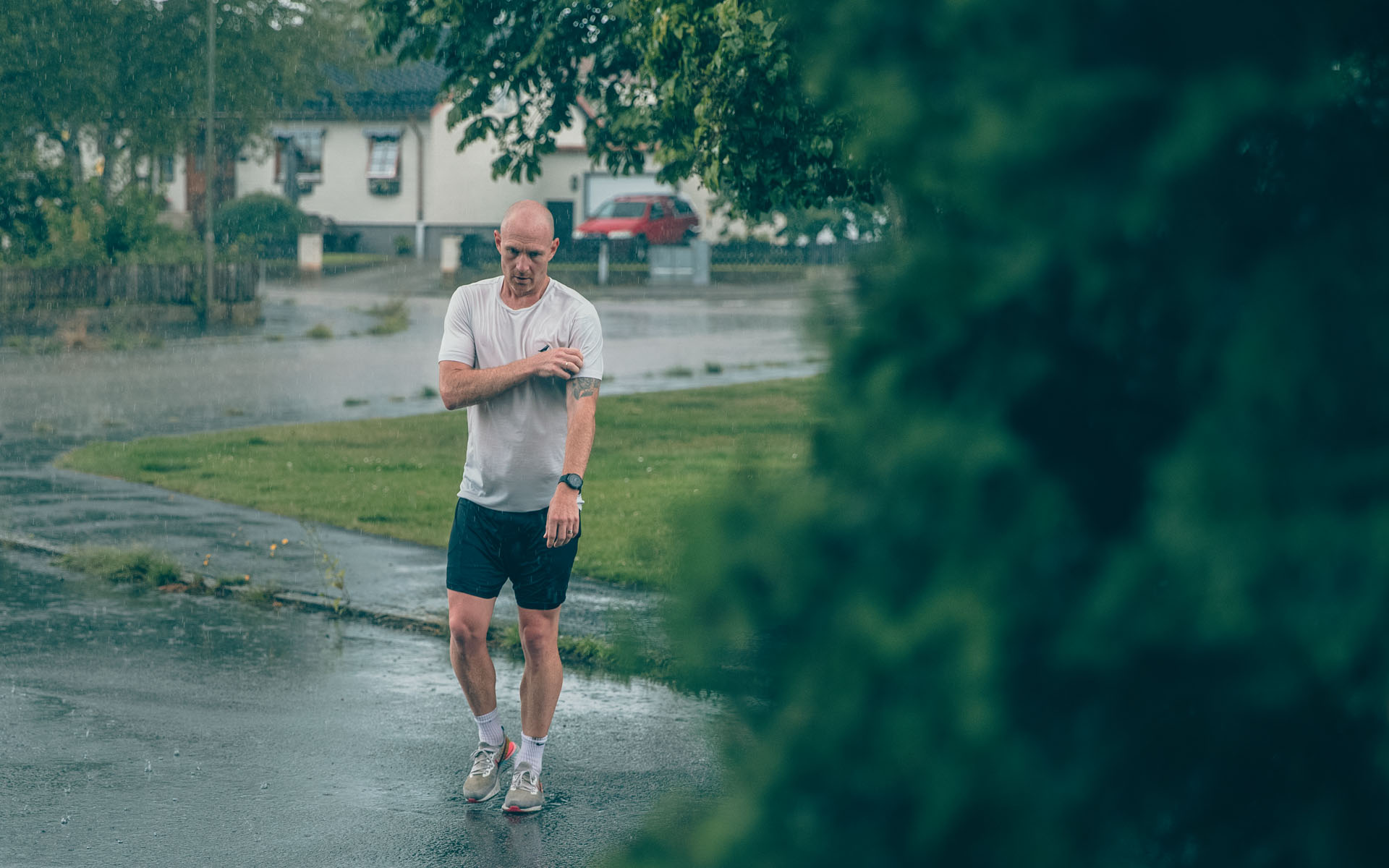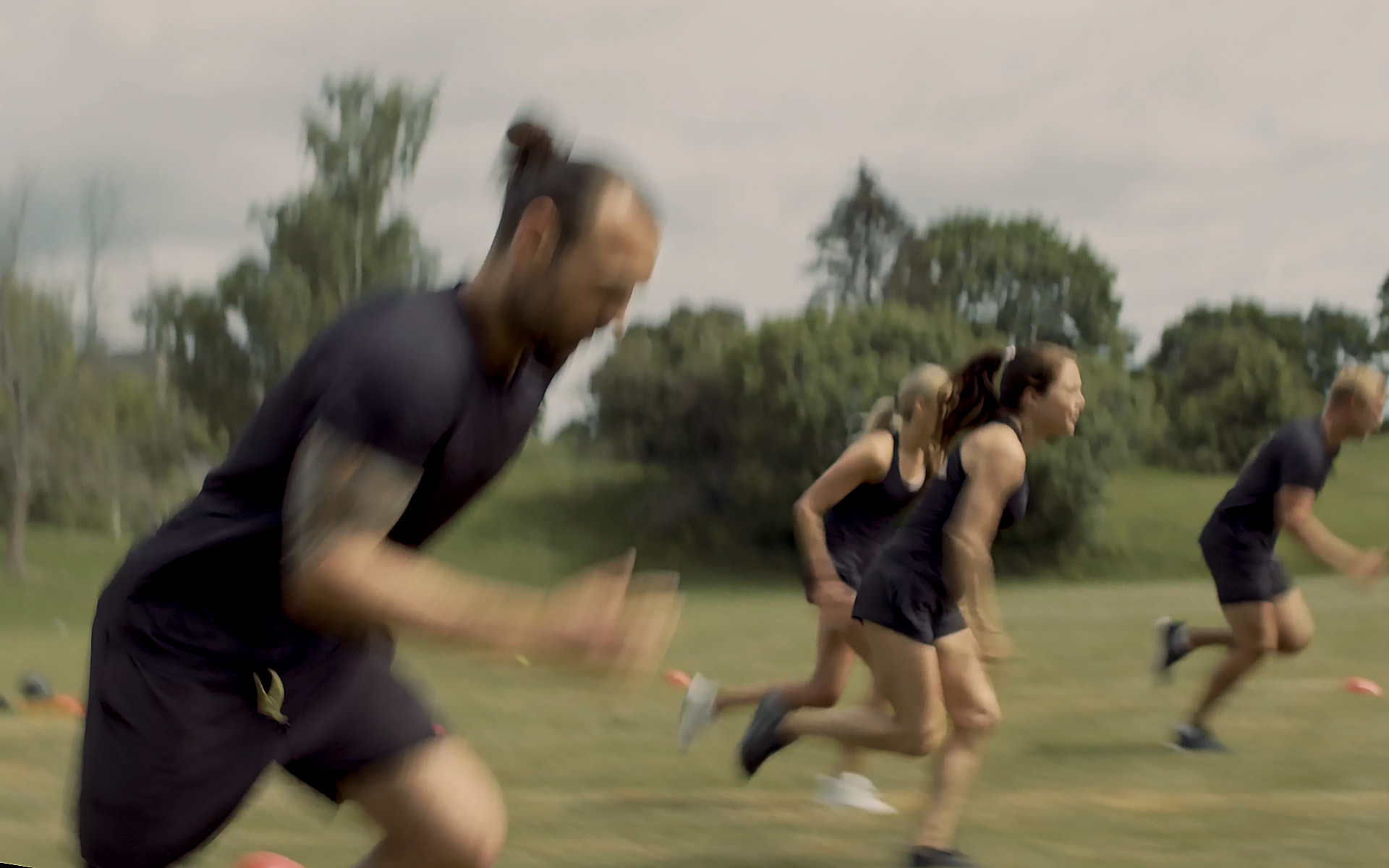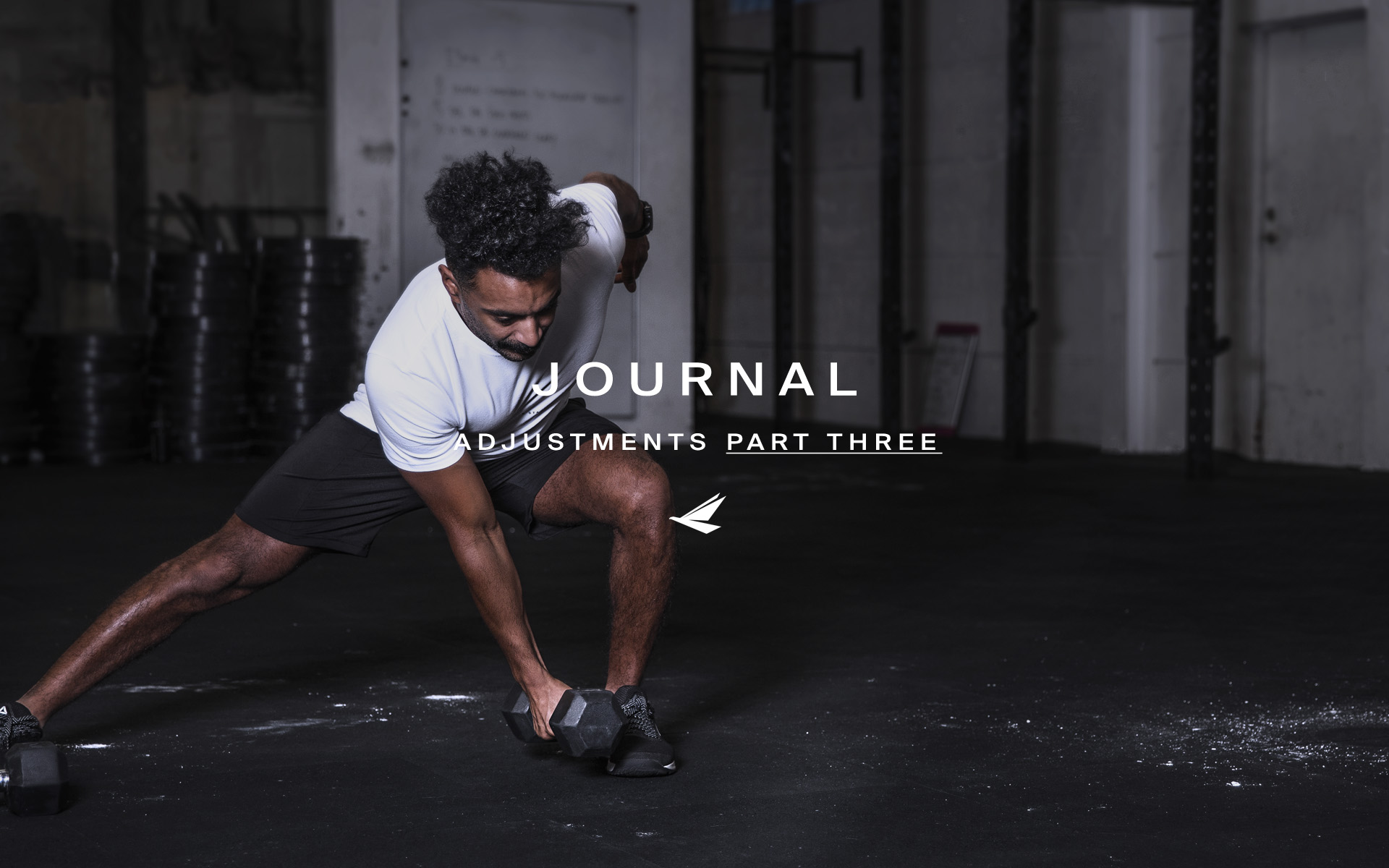Journal

A FRAMEWORK FOR PROGRESSION
We all have areas where we want to improve.
Areas that are meaningful and important to us. Where we want to enjoy both the inner satisfaction and joy of the activity itself, and at the same time grow and elevate, win trophies and receive appreciation.
Full effort and a clear intention
To actually get better at a given sport/job/role/task we need a clear intention and full effort.
We can’t improve if we’re not really clear about what we want to become better at, and we will not make any progress if we do not go for it with our full effort.
Repeatedly.
If we are not doing our best in a given situation we need to understand why?
Is it fear of failure? Are we protecting ourselves by not giving 100%…? Giving 100% and fail is hard, and only putting in 80% effort can “protect” us from critical thoughts and difficult emotions because “we did not do our best.”
It is not helpful.
It is not how we grow.
But it is a strategy that we can use to save our self-esteem.
Doing our best and come up short anyway is hard, but it is the only way to get better, more resilient and experienced.
Being vulnerable and exposed, going for what we value with our full effort are critical, but there are more…
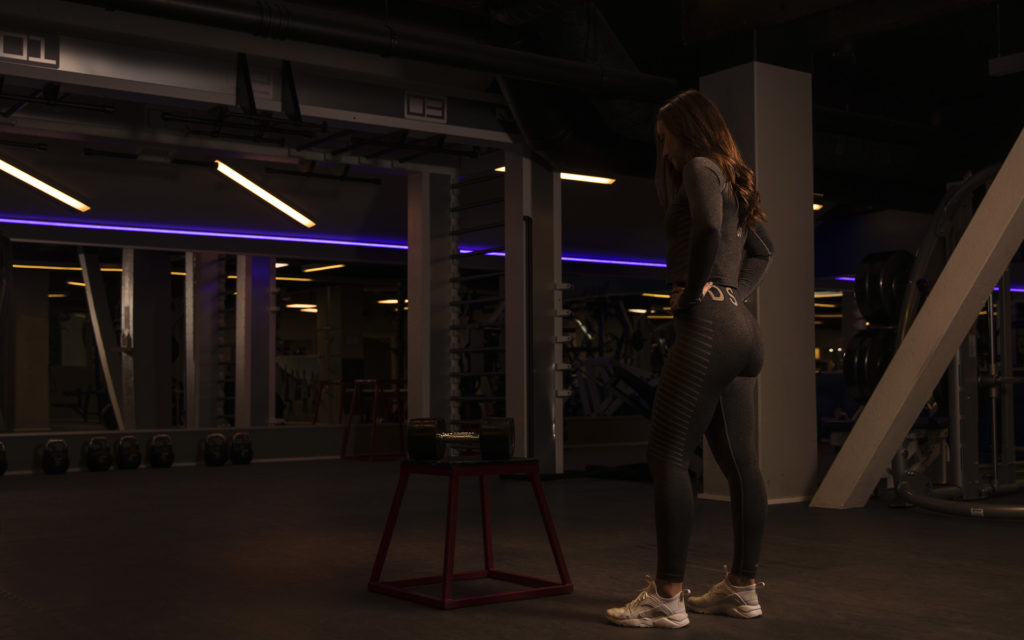
Preparations & Recovery
It’s really challenging to show up every day, week after week, with the intention to do our best in order to, over time, push our capacity.
To be able to do that you need to prepare yourself as good as you possibly can.
Nutritious food and good sleep are fundamental, and depending on what you’re going to do you adjust your routine optimally so when the session starts you are READY.
Ready for what?
Ready to go with full effort and a razor-sharp focus – and handle the vulnerability that comes with it.
Then – when you have pushed yourself in an intentional way – you need to slow down, relax and recover.
Giving your body and mind a chance to grow bigger, faster and stronger.
More efficient, wiser and more experienced. That is how you get better.
Just keep pushing yourself in an excessive way, session after session after session, without a smart periodisation or adequate recovery will eventually hurt you and slow you down.
Unhelpful thoughts->behavior
Going extremely hard session after session after session can perhaps fill a void inside your head. “Giving you the right” to relax or celebrate. Or the right to just be neutral.
A short period free from critical thoughts, before it’s time to go hard again.
Like you need to do something first to deserve life. “Now when Ihave pushed myself extremely hard in XYZ I deserve to rest, to eat, sit, laugh or whatever.”
Your standards that you need to perform at a given intensity, at a given volume and at a given frequency is what gets you good. It’s how you get better. But there is a thin line between really high, helpful standards and an inner prison that forces you to perform – often at excessive, unhelpful volumes and intensities – to “deserve” life.
It’s not true, it’s not helpful and it’s not healthy.
You need to sort out if you just train and accomplish things to justify your right to live, or if you train to actually get better at something.
If it’s true that you only train to deserve life you have work to do that is very, very important, very emotional, hard, and long-term.
A work that is bigger than this text but what we can say is that you are worthy your life, no matter how fast you run, the number of sessions you do in a week, or if you finish 1st, 2nd, 3rd, 12th….
Start working with the unhelpful thoughts and emotions that lay as a heavy weight on your soul and prevent you from moving freely in life. There are so much to explore, enjoy and celebrate, and your inner story about life and yourself should support that journey, not hinder it.
If the latter is the case – that you go insanely hard and practice to actually get better at a specific task, role or sport – you need(!) to recover to have the capacity required to push yourself in a way that makes you better.
Just showing up is not enough now. Full effort and progressive overload are required.
Without world class preparations and recovery you won’t be able to do that consistently, which will impact your progress.
It is hard enough with excellent recovery.
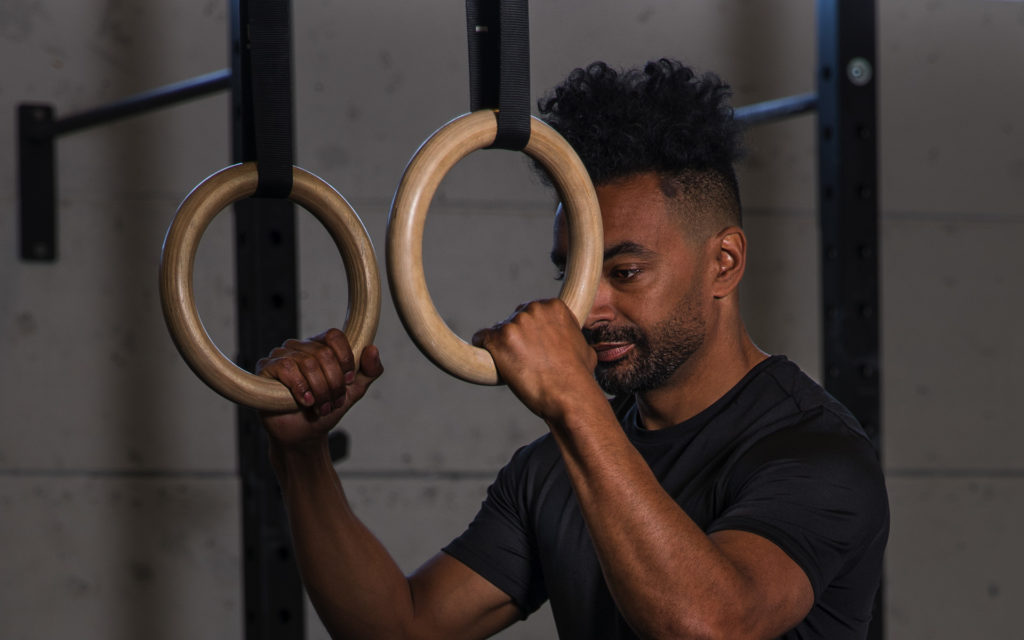
Feedback & Reflections
OK.
Full effort is required. 90% is not enough.
We need intention too. We need direction. A purpose for the session or the task.
Otherwise we will “just do stuff.”
Then – when we are done with the session/task/work day – we need to evaluate ourselves as honestly as we can, with the purpose of the session as the filter:
Did we focus on the right things?
What was good?
What do we need to do better tomorrow?
How can we improve that specific thing tomorrow?
What is the biggest obstacle in order to do that specific thing tomorrow?
Is it something that we need to stop doing?
Reflection is crucial. We can find unbelievable richness in our own contemplation. It is not always pleasant, but if we do it right it is very helpful.
But we need feedback too. External words, wisdom and experience. A different perspective.
But not from anyone or from everyone. Or all the time.
We want our feedback in an honest and structured way, from people that we trust and respect, even when their words hurt. The feedback should be constructive so that we can do something with it.
Being open for feedback is crucial for growth, but equally important as it is to be vulnerable to receive honest, helpful and sometimes difficult feedback in a productive way – it is to let go of critical voices and general opinions that are not serving your growth.
There are many people who just talks a lot, with no understanding or respect. We need to identify their intentions, what they actually are saying and try to understand the source their “feedback” is coming from. We need to make a decision, once and for all, to actively take our attention away from ill will and negativity. Nothing good comes from it and we do not want to waste our energy hiding or fighting.
It is better to calmly, focused and detached label those people as ‘not helpful’ (or kind) and just continue to focus on what is right, true and helpful to us.
Focus on the right feedback and wisdom. Do your best to apply it in your process.

Progression & Consistency
We need to challenge ourselves in new ways.
It could be higher intensity, more volume, sharper turns, harder questions, speaking in front of 5 more people or intentionally decide to face superior opponents.
If we are doing the same thing year after year we will not grow. We need to be very conscious about when the time is right to tweak our training. When to add some resistance and progressively make things harder.
Doing this repeatedly will challenge our bodies, minds and spirits in new ways.
We can not add volume, intensity or mental resistance every session – that is not wise – but if we are consistent with our practice we will eventually reach a point where it feels natural to challenge ourselves in a progressive way.
Without adequate recovery it is really hard to be consistent at the highest level.
So progression lies on intention, full effort and consistency – and consistency lies on recovery.
Consistency also lies on MEANING.
Why do you do what you are doing? Why do you push yourself so hard? Why do you organize your life in a way that makes it possible for you to push yourself so hard?
What is the win?
What is the cost?
Why is the win worth the cost(s)?
To be able to go further you need to have a fire, a why and an inner dialogue that make it worth it.
It can only come from you.
Deside what matters, and then live your life that way.
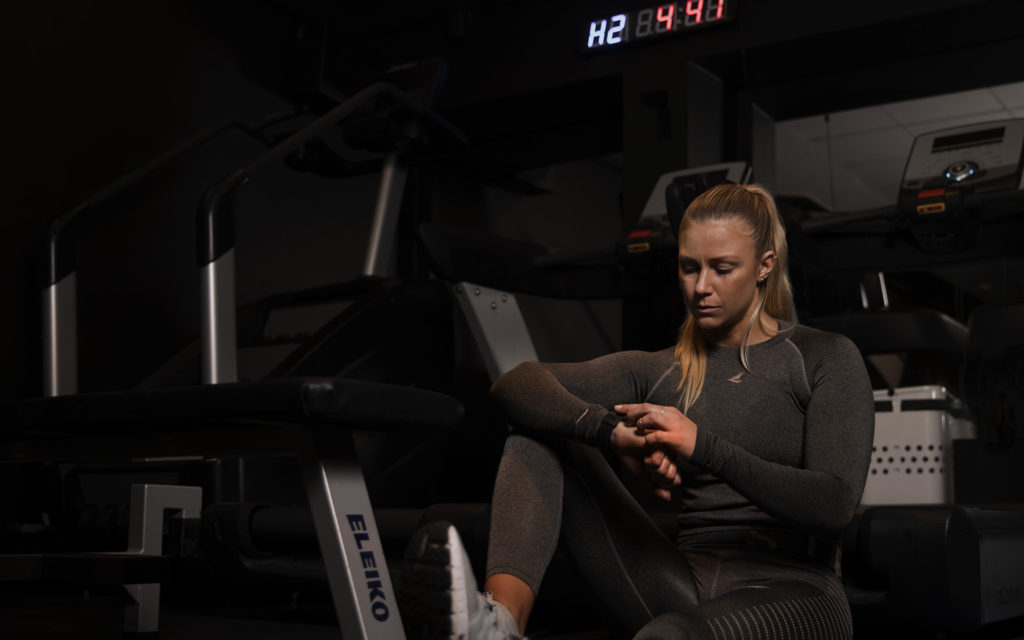
LYS
Photography by
Marcus Falk Olander


